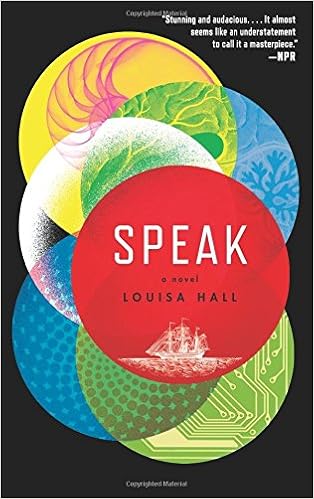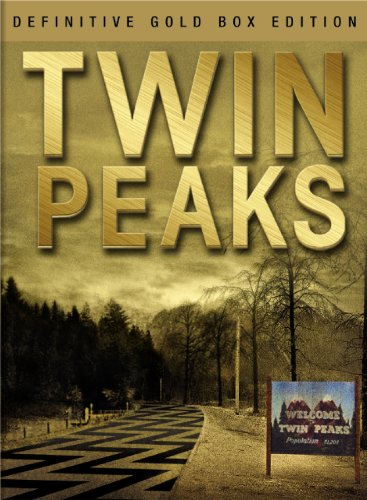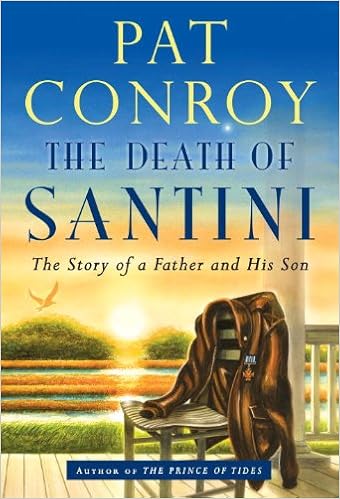Two or three times a year, Katie and I (Hi! It's Holley here!) host a presentation of new books to be published about which we and/or publishers are excited. Our last book preview program was earlier this month and, due to popular demand, we're sharing it with everyone! Keep in mind, most of these books have not yet been published and may not yet be available to order. I have included links to the PLJC's catalog, where available!
Impossible Views of the World by Lucy Ives
The World of Tomorrow by Brendan Mathews
Affections by Rodrigo Hasbun
Hiddensee by Gregory Maguire
Uncommon Type: Some Stories by Tom Hanks
Alone: Britain, Churchill, and Dunkirk, Defeat into Victory by Michael Korda
Gorbachev: His Life and Times by William Taubman
Draft No. 4: On the Writing Process by John McPhee
The Vietnam War: An Intimate History by Geoffrey C. Ward and Ken Burns
A Force So Swift: Mao, Truman, and the Birth of Modern China 1949 by Kevin Peraino
No Room For Small Dreams: Courage, Imagination, and the Making of Modern Israel by Shimon Peres
President McKinley: Architect of the American Century by Robert W. Merry
Grant by Ron Chernow
Hoover: An Extraordinary Life in Extraordinary Times by Kenneth Whyte
What Unites Us: Reflections on Patriotism by Dan Rather & Elliot Kirschner
Keep Her Safe by Sophie Hannah
Haunted by James Patterson & James O. Born
Secrets in Death by J.D. Robb
The Blind by A.F. Brady
Don't Let Go by Harlan Coben
The Romanov Ransom by Clive Cussler and Robin Burcell
The Saboteur by Andrew Gross
Sleep Like a Baby by Charlaine Harris
The Western Star by Craig Johnson
Beach, Breeze, Bloodshed by John Keyse-Walker
Glass Houses by Louise Penny
Murderous Mistral by Cay Rademacher
A Conspiracy in Belgravia by Sherry Thomas
A Casualty of War by Charles Todd
The Almost Sisters by Joshilyn Jackson
Fierce Kingdom by Gin Phillips
Sons and Soldiers: The Untold Story of the Jews Who Escaped the Nazis and Returned with the US Army to Fight Hitler by Bruce Henderson
Defiance: The Extraordinary Life of Lady Anne Barnard by Stephen Taylor
Rebellion by Molly Patterson
Sargent's Women: Four Lives Behind Canvas by Donna Lucey
The Child Finder by Rene Denfeld
Pale Rider: The Spanish Flu of 1918 and How It Changed the World by Laura Spinney
The Last Ballad by Wiley Cash
Endurance: A Year in Space, A Lifetime of Discovery by Scott Kelly
Artemis by Andy Weir
Monday, July 31, 2017
Wednesday, July 26, 2017
recommended reading and watching
The summer programming is almost over here at the library,
but we are by no means done with fun!
Tuesday, August 1st at 6:30pm is the final program (and fan favorite!)
for adult Summer Reading (ages 18 and up) so be sure to mark your calendars for Bad Art
Night! Prizes will be awarded for the
absolute worst work of the night J
We’ll also be drawing winners for our Grand Prize Baskets. Dinner will be catered by Taziki’s so come
hungry!
Our next Documentaries After Dark evening will be on
Tuesday, August 15th at 6:30pm and we’ll be showing Holy Hell. This film is not rated but is intended for adult audiences.
Here is the description from www.holyhellthedocumentary.com:
"Just out of college, a young filmmaker joins a loving, secretive, and spiritual community led by a charismatic teacher in 1980s West Hollywood. Twenty years later, the group is shockingly torn apart. Told through over two decades of the filmmaker’s archival materials, this is their story."
Here is the description from www.holyhellthedocumentary.com:
"Just out of college, a young filmmaker joins a loving, secretive, and spiritual community led by a charismatic teacher in 1980s West Hollywood. Twenty years later, the group is shockingly torn apart. Told through over two decades of the filmmaker’s archival materials, this is their story."
EOL, in partnership with Choice Home Care, will host another
Community Conversation on Aging on Tuesday, August 22nd at 10am. This morning session will focus on home
health, home care, hospice care, and everything you need to know about
choosing, paying for, and handling care options.
Wednesday, August 23rd is the last Art House Film of the
summer! Slow West is the story of a
young Scottish man traveling across America in pursuit of the woman he loves,
attracting the attention of an outlaw who is willing to serve as a guide.
And last, but certainly not least, our August GRG meeting is on Tuesday the 29th at 6:30 pm and the topic up for discussion is plays and theater.
July’s meeting was one of our biannual Salon Discussions,
where there is no assigned topic!
(1990)
An idiosyncratic FBI agent investigates the murder of a
young woman in the even more idiosyncratic town of Twin Peaks.
Picks up 25 years after the inhabitants of a quaint
northwestern town are stunned when their homecoming queen is murdered.

Speak by Louisa Hall
A thoughtful, poignant novel that explores the creation of Artificial Intelligence—illuminating the very human need for communication, connection, and understanding.
In a narrative that spans geography and time, from the
Atlantic Ocean in the seventeenth century, to a correctional institute in Texas
in the near future, and told from the perspectives of five very different
characters, Speak considers what it means to be human, and what it
means to be less than fully alive.
A young Puritan woman travels to the New World with her
unwanted new husband. Alan Turing, the renowned mathematician and code breaker,
writes letters to his best friend’s mother. A Jewish refugee and professor of
computer science struggles to reconnect with his increasingly detached wife. An
isolated and traumatized young girl exchanges messages with an intelligent
software program. A former Silicon Valley Wunderkind is imprisoned for creating
illegal lifelike dolls.
Each of these characters is attempting to communicate across
gaps—to estranged spouses, lost friends, future readers, or a computer program
that may or may not understand them. In dazzling and electrifying prose, Louisa
Hall explores how the chasm between computer and human—shrinking rapidly with
today’s technological advances—echoes the gaps that exist between ordinary
people. Though each speaks from a distinct place and moment in time, all five
characters share the need to express themselves while simultaneously wondering
if they will ever be heard, or understood.
The story of a team of female African-American
mathematicians who served a vital role in NASA during the early years of the
U.S. space program.
Monsieur Perdu can prescribe the perfect book for a broken
heart. But can he fix his own?
Monsieur Perdu calls himself a literary apothecary. From his floating bookstore in a barge on the Seine, he prescribes novels for the hardships of life. Using his intuitive feel for the exact book a reader needs, Perdu mends broken hearts and souls. The only person he can't seem to heal through literature is himself; he's still haunted by heartbreak after his great love disappeared. She left him with only a letter, which he has never opened.
After Perdu is finally tempted to read the letter, he hauls anchor and departs on a mission to the south of France, hoping to make peace with his loss and discover the end of the story. Joined by a bestselling but blocked author and a lovelorn Italian chef, Perdu travels along the country’s rivers, dispensing his wisdom and his books, showing that the literary world can take the human soul on a journey to heal itself.
Internationally bestselling and filled with warmth and adventure, The Little Paris Bookshop is a love letter to books, meant for anyone who believes in the power of stories to shape people's lives.
Monsieur Perdu calls himself a literary apothecary. From his floating bookstore in a barge on the Seine, he prescribes novels for the hardships of life. Using his intuitive feel for the exact book a reader needs, Perdu mends broken hearts and souls. The only person he can't seem to heal through literature is himself; he's still haunted by heartbreak after his great love disappeared. She left him with only a letter, which he has never opened.
After Perdu is finally tempted to read the letter, he hauls anchor and departs on a mission to the south of France, hoping to make peace with his loss and discover the end of the story. Joined by a bestselling but blocked author and a lovelorn Italian chef, Perdu travels along the country’s rivers, dispensing his wisdom and his books, showing that the literary world can take the human soul on a journey to heal itself.
Internationally bestselling and filled with warmth and adventure, The Little Paris Bookshop is a love letter to books, meant for anyone who believes in the power of stories to shape people's lives.
Finalist for the 2011 Pulitzer Prize in General Nonfiction:
“Nicholas Carr has written a Silent Spring for the literary
mind.”―Michael Agger, Slate
“Is Google making us stupid?” When Nicholas Carr posed that
question, in a celebrated Atlantic Monthly cover story, he tapped into a
well of anxiety about how the Internet is changing us. He also crystallized one
of the most important debates of our time: As we enjoy the Net’s bounties, are
we sacrificing our ability to read and think deeply?
Now, Carr expands his argument into the most compelling exploration of the Internet’s intellectual and cultural consequences yet published. As he describes how human thought has been shaped through the centuries by “tools of the mind”―from the alphabet to maps, to the printing press, the clock, and the computer―Carr interweaves a fascinating account of recent discoveries in neuroscience by such pioneers as Michael Merzenich and Eric Kandel. Our brains, the historical and scientific evidence reveals, change in response to our experiences. The technologies we use to find, store, and share information can literally reroute our neural pathways.
Building on the insights of thinkers from Plato to McLuhan, Carr makes a convincing case that every information technology carries an intellectual ethic―a set of assumptions about the nature of knowledge and intelligence. He explains how the printed book served to focus our attention, promoting deep and creative thought. In stark contrast, the Internet encourages the rapid, distracted sampling of small bits of information from many sources. Its ethic is that of the industrialist, an ethic of speed and efficiency, of optimized production and consumption―and now the Net is remaking us in its own image. We are becoming ever more adept at scanning and skimming, but what we are losing is our capacity for concentration, contemplation, and reflection.
Part intellectual history, part popular science, and part cultural criticism, The Shallows sparkles with memorable vignettes―Friedrich Nietzsche wrestling with a typewriter, Sigmund Freud dissecting the brains of sea creatures, Nathaniel Hawthorne contemplating the thunderous approach of a steam locomotive―even as it plumbs profound questions about the state of our modern psyche. This is a book that will forever alter the way we think about media and our minds.
Now, Carr expands his argument into the most compelling exploration of the Internet’s intellectual and cultural consequences yet published. As he describes how human thought has been shaped through the centuries by “tools of the mind”―from the alphabet to maps, to the printing press, the clock, and the computer―Carr interweaves a fascinating account of recent discoveries in neuroscience by such pioneers as Michael Merzenich and Eric Kandel. Our brains, the historical and scientific evidence reveals, change in response to our experiences. The technologies we use to find, store, and share information can literally reroute our neural pathways.
Building on the insights of thinkers from Plato to McLuhan, Carr makes a convincing case that every information technology carries an intellectual ethic―a set of assumptions about the nature of knowledge and intelligence. He explains how the printed book served to focus our attention, promoting deep and creative thought. In stark contrast, the Internet encourages the rapid, distracted sampling of small bits of information from many sources. Its ethic is that of the industrialist, an ethic of speed and efficiency, of optimized production and consumption―and now the Net is remaking us in its own image. We are becoming ever more adept at scanning and skimming, but what we are losing is our capacity for concentration, contemplation, and reflection.
Part intellectual history, part popular science, and part cultural criticism, The Shallows sparkles with memorable vignettes―Friedrich Nietzsche wrestling with a typewriter, Sigmund Freud dissecting the brains of sea creatures, Nathaniel Hawthorne contemplating the thunderous approach of a steam locomotive―even as it plumbs profound questions about the state of our modern psyche. This is a book that will forever alter the way we think about media and our minds.
Ticket to Write includes interviews with some of
the top music journalists from the 1966-81 era. Ticket to Write truly
is a film for those who know almost everything about rock n’ roll.''
Images of America is an ambitious collection of
chronicles that accurately capture the essence of what gives each American
small town, neighborhood, and downtown its unique flavor. Each one is penned by
a seasoned local expert and features hundreds of vintage images, local
memories, personal stories, and unique points of view in regards to a variety
of iconic events. At present, the series encompasses thousands of volumes and
counting.
The books in this series carried by EOL include “Birmingham Broadcasting,” “Birmingham’s Highland Park,” “Birmingham’s Theater and Retail District,” “Mountain Brook,” and “Sloss Furnaces.”
Tim Hollis has written/contributed to several books on local
businesses and historic areas including “Birmingham Broadcasting,” “Birmingham’s Theater and Retail District,” “Loveman’s: Meet Me Under the Clock,” “Memories of Downtown Birmingham: Where All the Lights Were Bright,” and “Pizitz: Your Store.”
Pat Conroy’s great success as a writer has always been
intimately linked with the exploration of his family history. As the oldest of
seven children who were dragged from military base to military base across the
South, Pat bore witness to the often cruel and violent behavior of his father,
Marine Corps fighter pilot Donald Patrick Conroy. While the publication
of The Great Santini brought Pat much acclaim, the rift it caused
brought even more attention, fracturing an already battered family. But as Pat
tenderly chronicles here, even the oldest of wounds can heal. In the final
years of Don Conroy’s life, the Santini unexpectedly refocused his ire to
defend his son’s honor.
The Death of Santini is a heart-wrenching act of reckoning whose ultimate conclusion is that love can soften even the meanest of men, lending significance to the oft-quoted line from Pat’s novel The Prince of Tides: “In families there are no crimes beyond forgiveness.”
The Death of Santini is a heart-wrenching act of reckoning whose ultimate conclusion is that love can soften even the meanest of men, lending significance to the oft-quoted line from Pat’s novel The Prince of Tides: “In families there are no crimes beyond forgiveness.”
Tom Brokaw has led a fortunate life, with a strong marriage
and family, many friends, and a brilliant journalism career culminating in his
twenty-two years as anchor of the NBC Nightly News and as bestselling
author. But in the summer of 2013, when back pain led him to the doctors at the
Mayo Clinic, his run of good luck was interrupted. He received shocking news:
He had multiple myeloma, a treatable but incurable blood cancer. Friends had
always referred to Brokaw’s “lucky star,” but as he writes in this inspiring
memoir, “Turns out that star has a dimmer switch.”
Brokaw takes us through all the seasons and stages of this surprising year, the emotions, discoveries, setbacks, and struggles—times of denial, acceptance, turning points, and courage. After his diagnosis, Brokaw began to keep a journal, approaching this new stage of his life in a familiar role: as a journalist, determined to learn as much as he could about his condition, to report the story, and help others facing similar battles. That journal became the basis of this wonderfully written memoir, the story of a man coming to terms with his own mortality, contemplating what means the most to him now, and reflecting on what has meant the most to him throughout his life.
Brokaw also pauses to look back on some of the important moments in his career: memories of Nelson Mandela, the Dalai Lama, the fall of the Berlin Wall, the morning of September 11, 2001, in New York City, and more. Through it all, Brokaw writes in the warm, intimate, natural voice of one of America’s most beloved journalists, giving us Brokaw on Brokaw, and bringing us with him as he navigates pain, procedures, drug regimens, and physical rehabilitation. Brokaw also writes about the importance of patients taking an active role in their own treatment, and of the vital role of caretakers and coordinated care.
Generous, informative, and deeply human, A Lucky Life Interrupted offers a message of understanding and empowerment, resolve and reality, hope for the future and gratitude for a well-lived life.
Brokaw takes us through all the seasons and stages of this surprising year, the emotions, discoveries, setbacks, and struggles—times of denial, acceptance, turning points, and courage. After his diagnosis, Brokaw began to keep a journal, approaching this new stage of his life in a familiar role: as a journalist, determined to learn as much as he could about his condition, to report the story, and help others facing similar battles. That journal became the basis of this wonderfully written memoir, the story of a man coming to terms with his own mortality, contemplating what means the most to him now, and reflecting on what has meant the most to him throughout his life.
Brokaw also pauses to look back on some of the important moments in his career: memories of Nelson Mandela, the Dalai Lama, the fall of the Berlin Wall, the morning of September 11, 2001, in New York City, and more. Through it all, Brokaw writes in the warm, intimate, natural voice of one of America’s most beloved journalists, giving us Brokaw on Brokaw, and bringing us with him as he navigates pain, procedures, drug regimens, and physical rehabilitation. Brokaw also writes about the importance of patients taking an active role in their own treatment, and of the vital role of caretakers and coordinated care.
Generous, informative, and deeply human, A Lucky Life Interrupted offers a message of understanding and empowerment, resolve and reality, hope for the future and gratitude for a well-lived life.
Subscribe to:
Comments (Atom)

















